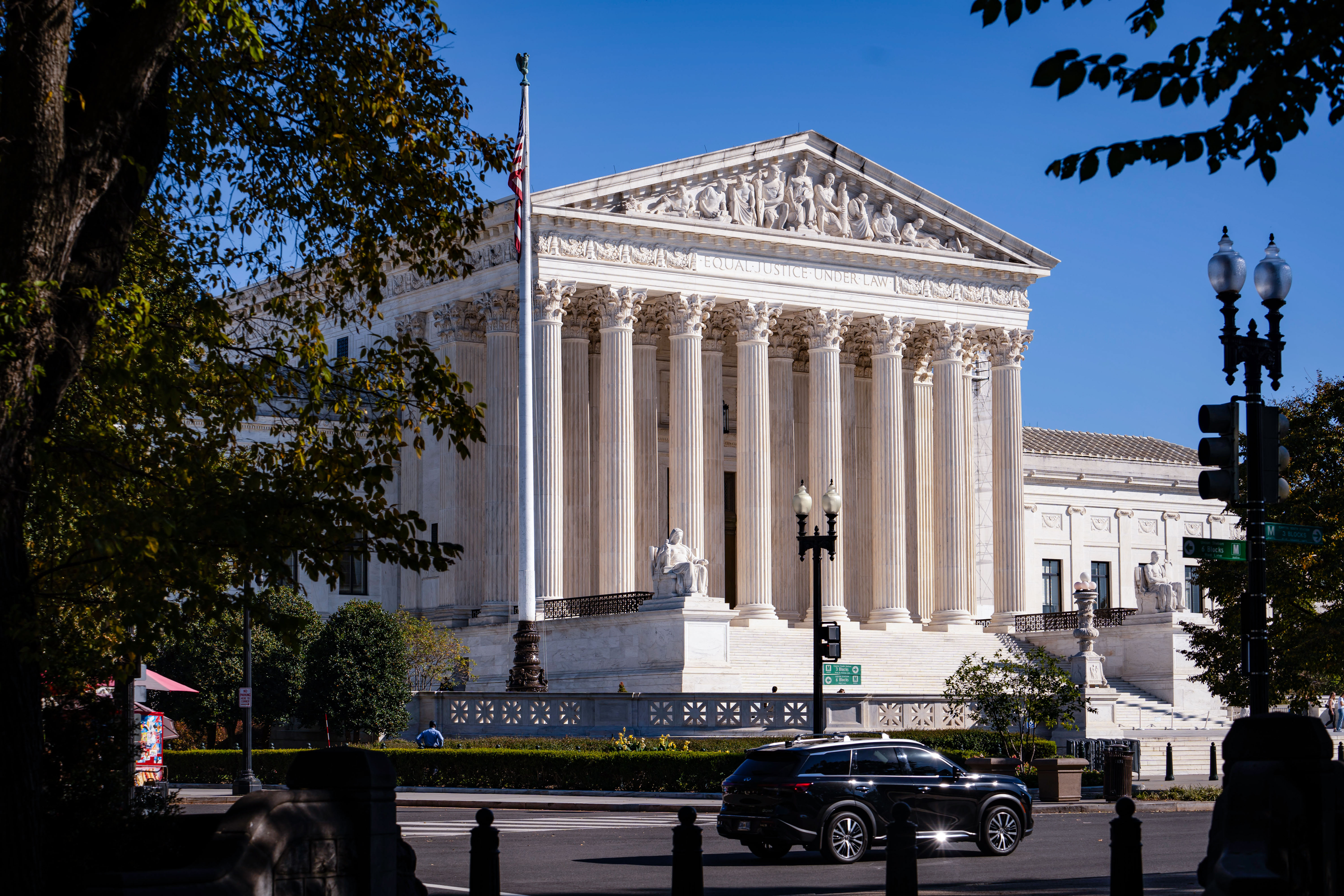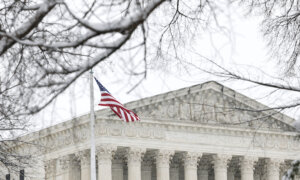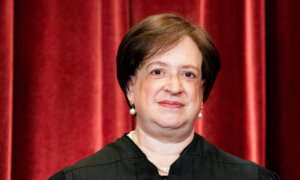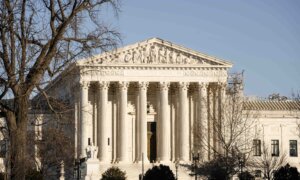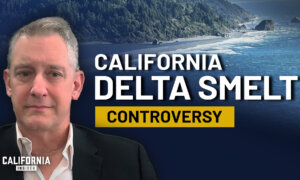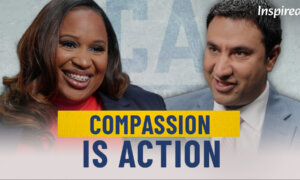The U.S. Supreme Court voted 6–3 on Oct. 30 to allow Virginia officials to remove suspected noncitizens from the voter rolls.
State officials reportedly removed the names of 1,600 individuals believed to not be U.S. citizens from Virginia voter rolls in recent weeks.
The court did not provide reasons for its emergency order, but Justices Sonia Sotomayor, Elena Kagan, and Ketanji Brown Jackson dissented, indicating that they would not have granted the relief it sought. The application in the case, known as Beals v. Virginia Coalition for Immigrant Rights, was filed with the court on Oct. 28.
A three-judge panel for the U.S. Court of Appeals for the Fourth Circuit found unanimously on Oct. 27 that taking the names even of noncitizens off the voter rolls within 90 days of an approaching federal election violated the National Voter Registration Act.
Federal elections are scheduled for Nov. 5.
The Supreme Court in 2006 held in Purcell v. Gonzalez that courts should not change rules close to an election because doing so creates the risk of causing confusion.
Virginia countered that the legal provision is not relevant because the names being removed are not those of actual U.S. voters.
“[But] that argument violates basic principles of statutory construction by focusing on a differently worded statutory provision that is not at issue here and proposing a strained reading of the Quiet Period Provision to avoid rendering that other provision absurd or unconstitutional,” the Fourth Circuit ruled.
Virginia had not demonstrated that its appeal was likely to succeed or that it would suffer irreparable harm should the appeal be denied, the circuit court said as it affirmed an Oct. 25 ruling by U.S. District Judge Patricia Tolliver Giles.
Giles wrote that Virginia was still free to cancel the voter registration of noncitizens individually or to investigate “noncitizens who register to vote or who vote in Virginia’s election.” The ruling applies only to Virginia’s “systematic” effort to remove noncitizens that began after Aug. 7, she said.
In the application, Virginia stated that it objected to the district court’s decision because “less than two weeks before the 2024 Presidential Election, and more than a month into early voting, the district court ... ordered Applicants, Virginia and its election officials, to place over 1,600 self-identified noncitizens back onto Virginia’s voter rolls, in violation of Virginia law and common sense.”
Virginia stated that the Supreme Court should stay the district court ruling because it “is based on a misinterpretation of the [National Voter Registration Act], which does not prohibit Virginia from removing noncitizens from its voter rolls.”
The ruling would also “impose significant cost, confusion, and hardship upon Virginia, creating a massive influx of work for its registrars in the critical week before the election, and likely confusing noncitizens into believing that they are eligible to vote.”
The Supreme Court’s new order stays Giles’s ruling and returns the case to the Fourth Circuit for further hearings in the appeal that is still pending there.
Virginia Gov. Glenn Youngkin praised the new ruling.
“This is a victory for common sense and election fairness,” he said in a statement.
“Clean voter rolls are one important part of a comprehensive approach we are taking to ensure the fairness of our elections. Virginians also know that we have paper ballots, counting machines not connected to the internet, a strong chain of custody process, signature verification, monitored and secured drop boxes, and a ‘triple check’ vote counting process to tabulate results.”
Danielle Lang of the Campaign Legal Center, attorney for the respondent, the Virginia Coalition for Immigrant Rights, criticized the ruling.
“The Supreme Court allowing Virginia to engage in a last-minute purge that includes many known eligible citizens in the final days before an election is outrageous,” Lang told The Epoch Times.
“Eligible Virginia voters should know that regardless of this purge they can register to vote on Election Day and cast their ballots.”
The Department of Justice (DOJ), which represented the federal government in the proceeding, also found fault with the ruling.
“The Department brought this suit to ensure that every eligible American citizen can vote in our elections,” a DOJ spokesperson told The Epoch Times.
“We disagree with the Supreme Court’s order.”
